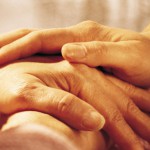Editor’s Note: The following was shared with us by friends at Churchill Insurance, a U.K.-based company selling many forms of insurance. A link to their site is at the bottom. It is an excellent compendium of grief advice. Their webpage has useful links, but primarily for U.K. citizens. We have included them.
Coping with death and grief – The bereavement process explained
As much as we don’t like to think about it, death is a part of life. While it’s not a nice thought, there’s nothing we can do to stop those we love from passing away when the time comes. It’s understandable to feel sad and even helpless when this happens, but the pain will become easier to cope with over time.
Introduction
Common feelings after a death
People go through various stages of grief when they’re coming to terms with a death.
We used to understand these in five stages: denial, anger, bargaining, depression and acceptance.
Understanding the common stages of grief can help a person be better prepared, but everyone grieves differently. There’s no right or wrong amount  of time to be upset about losing someone, so let things progress naturally.
of time to be upset about losing someone, so let things progress naturally.
More recently, these five stages have been questioned. They were originally seen in people with terminal illnesses coming to terms with their own death.
When you’re dealing with the loss of someone close to you, it doesn’t always feel like you’re going through stages. It’s more complicated than that and it can be frustrating if someone tells you you’re stuck in a certain stage of grief.
Don’t expect your grief to follow a predictable pattern. It’s natural to feel like you’re making progress one day, and have a set back the next. You’ll experience a whole range of emotions and feelings, even beyond those described in the five stages.
The biological process of grief
Your body responds when you’re grieving. Once grief has triggered a response, you’re likely to experience a number of side effects, including:
- Boosted adrenaline.Our brain triggers the fight or flight response, leading to a faster heartbeat and additional release of adrenaline. You might feel on high alert.
- Often caused by a lack of sleep, grief can lead to insomnia and depression – leaving you drained of energy and motivation.
- Digestion problems.Issues with your digestion can be common when experiencing sadness.
If you lose someone close to you, be prepared for short-term changes to your health. It’s normal to feel the effects on your body. Staying active and eating well can help.
Daily life when you’re grieving
How to maintain your regular lifestyle
The impact a death will have on your life is significant. But there are ways to cope with a loss, including:
- Create a routine.Having a routine in place can help keep you balanced. A structure will give you a solid foundation to rebuild from, at a time
 when you’re struggling to find your feet.
when you’re struggling to find your feet. - Talk to loved ones.Open up to the people closest to you. You’ll be sharing a lot of the same feelings and talking about them is an important part of grieving.
- Encourage yourself to participate.It’s natural to withdraw from life when you’re under stress. If you find yourself feeling this way, take small steps to do the things that usually make you happy.
Helping children cope with a death
The loss of a loved one can be especially hard on children, because it’s probably the first time they’ve experienced these feelings. You’ll play a large part in helping them deal with their grief.
- Use clear and honest words.Be as clear as possible when speaking to a child. They’re probably struggling to understand what’s happening, so being open will help them process what’s going on.
- Listen to their concerns and questions.Make sure you answer any questions they have, and let the child know it’s perfectly normal to feel the way they do.
- Explain funerals.There’s a good chance a child won’t know what a funeral is. If you want them to go, give them a description of why it happens, and what to expect on the day.
- Help them remember the person.Talking about memories of a lost loved one can be helpful to children. This positive energy is therapeutic and may help them battle through the worst of what they’re experiencing.
- Do things to keep their minds active.Keep a child happy and distracted with activities such as family days out. Sitting inside for too long won’t help anyone.
Helping adults around you to grieve
It’s not only children who grieve. You might want to help a partner, friend or family member who’s experiencing this kind of pain. Some of the best methods include:
 Listening to them. Don’t presume the grieving person would want to be treated the same way you would. Just having someone to listen to them can help. You don’t always have to give advice or have a solution.
Listening to them. Don’t presume the grieving person would want to be treated the same way you would. Just having someone to listen to them can help. You don’t always have to give advice or have a solution.- Talk about the person who’s passed. Sometimes people feel as though mentioning the deceased will be upsetting. But somebody who’s grieving might want to talk about their loved one, so give them time to bring it up.
- Reaching out. Don’t wait for someone to ask you for help. While you don’t want to be pushy, it’s nice to make sure a person knows you’re there if needed.
- Point them towards professional help. If they’re struggling to come to terms with their loss, you can suggest they seek professional help.
Getting help with grief
Finding the support and care you need at this distressing time can make a huge difference.
Getting emotional support from those around you
During difficult times, we rely on those closest to us for support. But we’ve got to want their help, so bear in mind these points:
- Share your issues. Make sure people around you know if you’re struggling. There’s a better chance they’ll be able to help if they know what’s up.
- Say yes to help. If someone reaches out to offer you advice, be open to their support. A heart-to-heart can make a difference. It’s worth getting a range of support too, from friends and professionals.
It can be uncomfortable to open up about your issues, but it’s important to separate yourself from those doubts to get the help you need.
Taking steps to help with your own emotional health
Looking after your emotional health and well-being is always important, especially when you’re suffering a loss.
- Stay physically active.Exercising has been shown to have a positive impact on not only your body, but also your mind. Depression and anxiety can improve when you’re active.
- Take up a hobby.Take your mind off what’s troubling you by enjoying a hobby of your choice. It’s important to do things you enjoy, and not feel guilty about having a good time.
- Get enough sleep.A lack of sleep can make things worse. Try to start relaxing before it’s time to go to bed
Support lines and communities
Whether it’s from your friends, family or these dedicated services, there’s always support available to you after a death. Try not to isolate yourself –  instead, reach out and get help.
instead, reach out and get help.
If you feel like you want to talk to people who are in a similar situation to you, support groups can be a great help too. Having someone to chat to, who can relate to your situation, is incredibly useful.
Useful links
- https://www.cruse.org.uk/children/how-to-help
- https://www.helpguide.org/articles/grief/coping-with-grief-and-loss.htm
- https://www.mariecurie.org.uk/help/support/bereaved-family-friends
- https://www.nhs.uk/conditions/stress-anxiety-depression/mental-health-helplines/
- http://www.parentcompanion.org/article/understanding-the-stages-of-grief
Churchill Insurance was among one of the UK’s first direct motor insurers. In 1990, we started selling home insurance and, over the years, have extended our services, now offering car insurance, home insurance, travel insurance, pet insurance, breakdown cover and van insurance. You can visit our site by clicking the logo above or pasting this into your browser:
https://www.churchill.com/life-insurance/coping-with-death-grief
We are a UK based company and sell insurance policies by phone and on the internet.
Every Thursday we publish “AfterTalk Weekly.” We invite readers to submit their own poem, essay, or suggestions for publication. If you are a therapist, you are welcome to extend this invitation to your clients as well. Please send your submission to info@aftertalk.com

